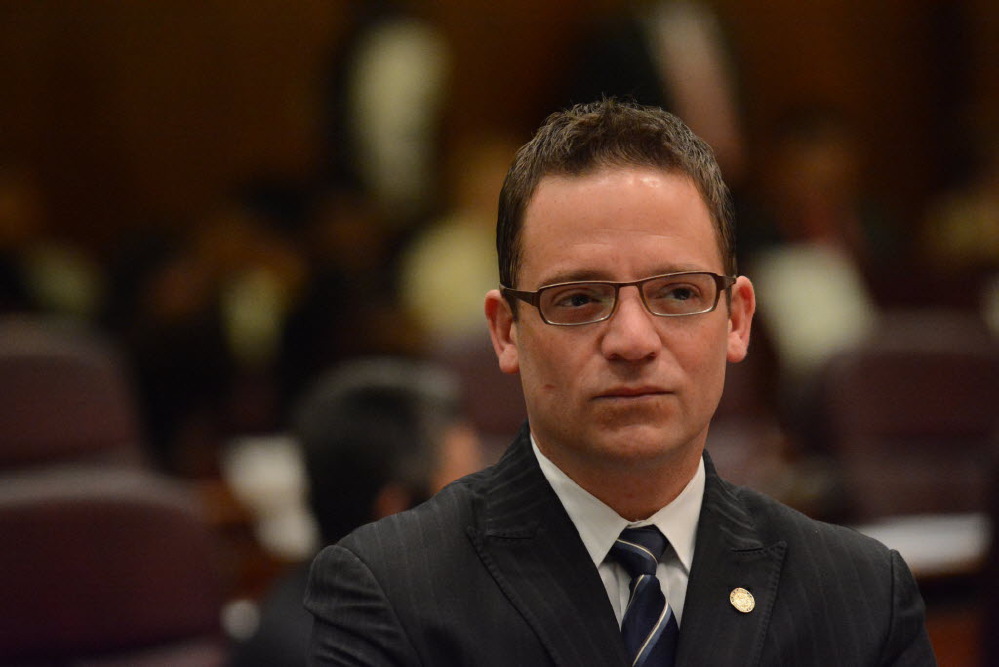BGA Public Eye: Ald. Moreno wants Rahm to share control of CHA
By Brett Chase
An alderman wants to strip much of Mayor Rahm Emanuel’s control of the Chicago Housing Authority for holding onto millions of dollars in federal funding rather than spending it on housing for poor people.
It is calling for CHA to spend the dollars that have not been spent on the re-establishment of affordable and public housing — they are way, way, way behind,” says Ald. Proco “Joe” Moreno (1st), sponsor of the proposed “Keeping the promise” ordinance.
Though Emanuel opposes the measure and it’s found little backing from other aldermen, Moreno and supporters say a hearing at City Hall next month will put a spotlight on how Emanuel’s CHA squirrels away the federal money designated for housing even as tens of thousands of people are homeless or living in temporary residences.
“Tens of millions of dollars are not being spent, people are without homes, and there are decades of mistrust,” Moreno says.
The city can spend the federal money as it sees fit. Still, Chicago has failed in recent years to meet a goal of replacing thousands of public housing apartments lost as a result of CHA high-rise teardowns that began more than a decade ago.
Under Moreno’s proposal, development and spending decisions that Emanuel now has over the housing agency would be shared with the Chicago City Council.
The ordinance also would direct the agency to issue more vouchers for CHA residents to live in private residences under the program known as Section 8. More than 40,000 CHA tenants rent Section 8 properties — almost twice the number now living in agency-owned buildings. The application wait list for CHA or Section 8 housing in Chicago was almost 121,000 at the end of September. The agency is several thousand units short of a goal set in 1999 to develop 25,000 new units of public housing by 2010.
At the end of 2014, CHA had a pot of $430 million in unspent money. The agency has been so flush with money that it used more than $260 million in housing money to pay off debt and fully fund CHA employee pensions in 2011 and 2012, an analysis by Chicago research group Center for Tax and Budget Accountability found.
Emanuel opposes the move to share control of the agency, which has a yearly budget of more than $1 billion and is largely funded by the U.S. Department of Housing and Urban Development, saying it “would hinder the CHA’s ability to provide the housing and services that Chicago depends on.”
The CHA has had four chief executives in the past five years. The acting current agency chief, Eugene Jones Jr., was tabbed by Emanuel to replace Michael Merchant last June. The following month, the mayor named retired ComEd executive and lobbyist John T. Hooker as chairman, replacing Zaldwaynaka “Z” Scott.
“We have not had the right team in place,” Hooker says of past problems, adding that Emanuel “said, ‘You need to bring some stabilization, you need to bring some accountability.’ ”
Hooker promises to spend the millions available to develop new housing.
“Some of the things CHA didn’t do in the last 10 years, we’re doing now,” he says. “We plan to spend the money adequately to provide the housing for this community.”
The hearing on Moreno’s proposal will be held Feb. 17, according to Ald. Joe Moore (49th), chairman of the City Council’s Committee on Housing and Real Estate. An early supporter, Moore says he now opposes the measure, saying it would have “unintended consequences,” and plans to hold only an informational hearing without calling for a vote.
Replacement housing for the poor slowed after Emanuel took office in 2011. The number of public housing units added in Emanuel’s first four years — 673 — was short of the 851 added in 2010 alone.
“The policies have been consistently poor,” says Leah Levinger, executive director of the Chicago Housing Initiative, a group that pushes for low-income housing. “There needs to be a rebalancing of the accountability structure.”








